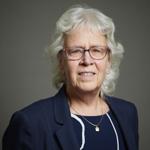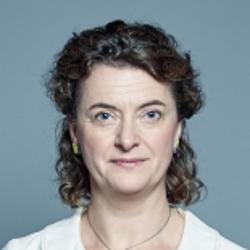Schools: Offences against Children
(asked on 24th June 2021) - View SourceQuestion to the Department for Education:
To ask Her Majesty's Government what plans they have to provide an update on their work with the Centre of Expertise on Child Sexual Abuse to support Designated Safeguarding Leads in schools to identify and respond to child sexual abuse.
Schools and colleges must have regard to the statutory safeguarding guidance ‘Keeping children safe in education’ (KCSIE). This guidance sets out the role of the designated safeguarding lead, and highlights that they should undergo training to provide them with the knowledge and skills required to fulfil the role. Designated safeguarding leads (DSLs) should have a good understanding of their own role, and the processes, procedures, and responsibilities of other agencies.
The department keeps the KCSIE guidance under review, updating and strengthening it as required (usually on an annual basis), to ensure all schools and colleges have the guidance to meet their statutory duties to safeguard children. As part of this, we also carry out regular public consultations, with the most recent closing on 4 March 2021. In total, 90% of respondents agreed that Part five of the draft guidance provides schools and colleges with the right level of information to support them to manage reports of child-on-child sexual violence and sexual harassment effectively. Of the 7% who said it was not enough, the information which they would like to see included is already within the additional advice document, entitled ‘Sexual Violence and Sexual Harassment between children in schools and colleges’ (SVSH). KCSIE is supplemented with SVSH, which provides detailed advice about all types of child sexual abuse, including peer-on-peer abuse, the focus of the recent Ofsted review.
The guidance helps schools and colleges understand what they need to do to respond quickly and effectively when an incident occurs, or if they have concerns about a child, including all forms of sexual abuse.
The Everyone’s Invited testimonies have shown us the scale and nature of sexual abuse and harassment experienced by young people, often by their peers. The department acted quickly by asking Ofsted to carry out a thematic review into sexual abuse, the findings from which have now been widely reported and can be found here: https://www.gov.uk/government/publications/review-of-sexual-abuse-in-schools-and-colleges/review-of-sexual-abuse-in-schools-and-colleges. We have also set up a dedicated NSPCC helpline to support anyone who has experienced sexual abuse in educational settings or has concerns about someone or the issues raised.
We have already updated and published the information statutory guidance: Keeping Children Safe in Education (KCSIE), and Sexual Violence and sexual harassment between children in schools and colleges, both coming into force for this September. The updated guidance will ensure that schools and colleges, including DSLs, have even clearer guidance on how to deal with reports of sexual abuse, where to seek additional support (including engagement with the multi-agency safeguarding partners), help them make decisions when there are long-term investigations, harmful sexual behaviour, or when a criminal investigation does not lead to a prosecution or conviction. We will also update the Working Together to Safeguard Children statutory guidance in due course.
We will continue to develop our policies and engage with sector experts to understand the emerging risks and harms that children face, especially regarding peer-on-peer abuse, sexual exploitation, and online harms. As part of this work, we will keep the statutory guidance under review to update and strengthen as required, to ensure all schools and colleges have the guidance to meet their statutory duties to safeguard children. It goes without saying that we will thoroughly consider all the findings of the recent Ofsted report as part of this routine process. The work on the 2022 iteration of KCSIE has already started, including a cross-government review of the definitions of sexual abuse, including peer-on-peer, to consider how to better reflect the experiences of children and young people.
We are extending the DSL supervision trials, involving 30 local areas, to up to 10 further local authorities, with a specific focus on sexual abuse. The programme, led by What Works for Children’s Social Care, aims to strengthen support for designated safeguarding leads and will help build the evidence base on what works.
We are committed to developing an online resource hub for designated safeguarding leads where they can access relevant advice and guidance on a range of issues. The online resources will be developed with DSLs and relevant sector experts and made available in 2022. We will be working with the Centre of expertise on child sexual abuse to include resources on child sexual abuse.
The government will also undertake further work to consider how we can give greater status and support to designated safeguarding leads, looking first at the model we have for Special Educational Needs Coordinators.

